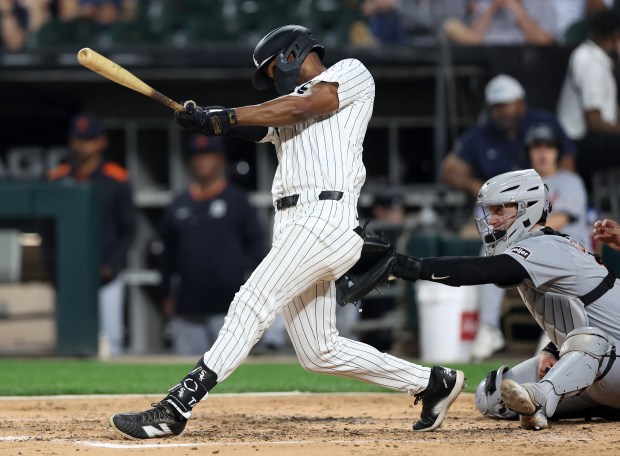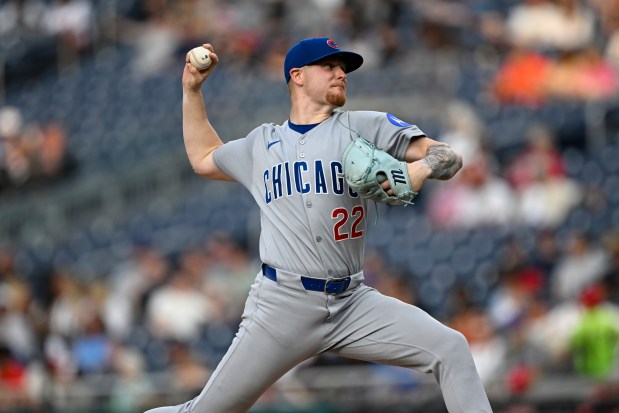For many people, Michael Miner was best known as the astute, must-read chronicler of all things media in his “Hot Type” column in the Chicago Reader.
“In an era of robust competition among newsrooms all over town, Michael Miner was an unsentimental watchdog of Chicago journalism and a conscience of our profession,” says Robert Feder, longtime Chicago media critic. “He didn’t originate the ‘Hot Type’ column, but he made it his own, and he made it the first thing we turned to when The Reader came out every week.”
Miner died on May 1 of natural causes. He was 81 years old and surrounded by his family. Almost immediately, the internet was filled with memories, many of them do-it-yourself obituaries that smacked of self-aggrandizement. That certainly was not Miner’s style.
Feder goes on, saying, “About 10 years ago, around the time Mike was stepping down from The Reader, I nominated him for a lifetime achievement award from the Chicago Headline Club. No question he deserved it, and I figured he was a sure win. But when he learned what I’d done, he had his name withdrawn. ‘I am easily embarrassed,’ Mike explained, ‘I don’t want to go through anything like a nominating process. Besides, I have a good idea of who deserves what.’
“Humility like that is rare in our business.”
That quality was apparent to those who knew Miner best.
“He was the smartest, most honest and most ethical person I have ever known,” says Betsy Nore, Miner’s wife of 48 years. “I loved him so.”
They met in the early 1970s when Miner walked into a Lakeview shop called Presence that Nore had just opened. He purchased the then-unusual item, granola. And he asked her on a date. Since Miner was then working the night shift, getting off work in the early morning, it took a while for that to happen. At his suggestion, they played tennis at the Waveland Avenue courts, even though, Nore says, “Neither of us really knew how to play.”
But they dated on and off for a few years. Married on June 11, 1977, they would have three daughters.
Daughter Molly Miner, a school administrator, married to Alex Rosenthal and the mother of Solomon and Neva, said, “He was an incredible father. He made a point of having special traditions with my sisters and me. He made all of us feel special. One was our annual trip to Marshall Fields to see the holiday windows, visit Santa, pick out a Christmas gift for my mom. We did this into adulthood, until Fields was sold to Macy’s. He always had a pocketful of change for us to give to the Salvation Army bell ringers. Christmas traditions were important to us, and he was thrilled to see my son Solomon dance in Joffrey’s ‘Nutcracker.’”
Joanna Miner, married to Daniel Thomas and the mother of Elise and Jesse, said, “He was fun. He did the can-can with other dads on the sidelines of my soccer games and he never missed a game. He did the crossword every day, often completing it before anyone else was awake. When we played Celebrity as a family, he would add ‘celebrities’ like ‘Dagwood Bumstead,’ much to everyone’s confusion. Giving rides was his love language. No matter the time or how inconvenient, you could count on Dad to want to give you a ride. Even though I live off the Blue Line, he always insisted on driving me to the airport and picking me up. My kids and I deeply loved him and knew that he loved us.”
Laura Miner, a grade school teacher and basketball coach, said, “He was the best dad you could imagine. A true girl dad, who was deep. He instilled in us a need to work for justice and a desire to understand truth. My sisters and I are who we are only for the better because of him. I feel very lucky.”
Michael Richard Miner was born in St. Louis in 1943. A self-described “nerdy kid,” he graduated from high school at 15. After studying engineering at Missouri University of Science and Technology, he completed a bachelor’s degree in journalism from the University of Missouri and was a 19-year-old member of Mensa.
He worked, unsatisfyingly, as a door-to-door salesman for a short time and then wrote for, of all publications, the Disciples of Christ Christian Catalogue. Enlisting in the United States Navy, he served on an aircraft carrier off North Vietnam in the Gulf of Tonkin. After an honorable discharge, he worked as a reporter and editor in St. Louis before moving here to work at the Chicago Sun-Times.
Newsrooms then were raucous places, filled with loud voices, the constant clacking of typewriters, cigarette smoke and big, colorful personalities.
Mary Dedinski was a young reporter then, later to be the paper’s managing editor. She remembers, “Michael was a distinctive presence in the newsroom, quiet but with a formidable mind and great skills of observation and writing. Always, he would bring a fresh perspective or idea to any situation, often with a dry sense of humor. We were passionate about Chicago and our stories and for more than five decades, he was a forever friend, warm and generous.”
He took a leave of absence from the paper to return to Vietnam in 1975. As the war drew to a close, he did not avail himself of a seat on one of the last helicopters out of the capital city of Saigon. Instead he posed as the husband and father of a young Vietnamese family to help them escape.
He would spend more years as a reporter at the Sun-Times, and was among the journalists to found and write for the now legendary the Chicago Journalism Review. He began freelancing for the Chicago Reader after writing a story for its first issue in 1971 and joined its staff in 1979, tasked with editing the weekly ‘Hot Type’ column before becoming its sole voice. He also wrote some longer stories and edited those of the paper’s talented staff, among them John Conroy and his astonishing work exposing police torture.
Miner was profiled in the Reader in 2011 by his colleague Steve Bogira, who notes that although his “Hot Type” column was “ostensibly about the media,” it was “really about human nature.” In 2011, he wrote a chilling story about the 1982 rape and murder of the woman babysitting then-10 month old Joanna and a fire set in his house. The fireman who saved Joanna was at her wedding. And then in 2013, Miner wrote about having had primary sclerosing cholangitis, an inflammation of the bile ducts since 2001, which necessitated a successful liver transplant.
His papers and other materials were donated to the Newberry Library, where his life will be celebrated at 2 p.m. May 19, and where his papers will reside for keeps, alongside a couple of other columnists named Ben Hecht and Mike Royko.
rkogan@chicagotribune.com




